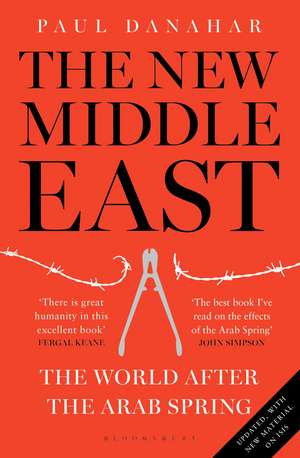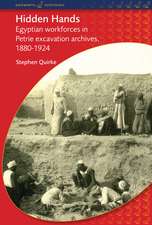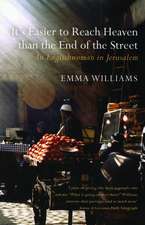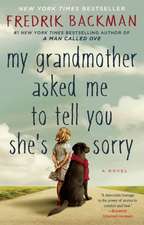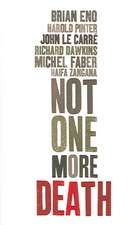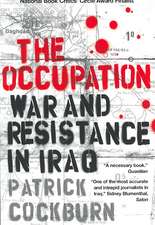The New Middle East: The World After the Arab Spring
Autor Paul Danaharen Limba Engleză Paperback – 15 iul 2015
Preț: 82.59 lei
Preț vechi: 108.17 lei
-24% Nou
Puncte Express: 124
Preț estimativ în valută:
15.81€ • 16.46$ • 13.36£
15.81€ • 16.46$ • 13.36£
Carte disponibilă
Livrare economică 17 februarie-03 martie
Livrare express 31 ianuarie-06 februarie pentru 51.64 lei
Preluare comenzi: 021 569.72.76
Specificații
ISBN-13: 9781408870174
ISBN-10: 1408870177
Pagini: 496
Dimensiuni: 129 x 198 x 32 mm
Greutate: 0.39 kg
Ediția:Revizuită
Editura: Bloomsbury Publishing
Colecția Bloomsbury Paperbacks
Locul publicării:London, United Kingdom
ISBN-10: 1408870177
Pagini: 496
Dimensiuni: 129 x 198 x 32 mm
Greutate: 0.39 kg
Ediția:Revizuită
Editura: Bloomsbury Publishing
Colecția Bloomsbury Paperbacks
Locul publicării:London, United Kingdom
Caracteristici
Author has been the BBC's top man in the Middle East with many years of experience, and has been named as one of the UK's fifty most influential journalists on Twitter
Notă biografică
Paul Danahar was the BBC's Middle East Bureau Chief (2010-13) and ran the organisation's news coverage of the Arab Spring. He was awarded an MBE in 2003 for his work as the Baghdad Bureau Chief during the American-led invasion. Prior to his present posting he was the BBC's East Asia Bureau Chief for three years, and previous to that he was the BBC's South Asia Bureau Chief, covering the rise, fall and eventual return of the Taliban. He is one of a small number of journalists to have worked in all three countries that make up the so-called 'Axis of Evil': Iraq, Iran and North Korea. In 2013 he was appointed the BBC's North America Bureau Chief, based in Washington.Follow him at @pdanahar.
Recenzii
Danahar weaves a complex narrative into a lively, accessible read, much of which should withstand the passage of time . A solid but easygoing compendium for anyone who wants a read beyond the headlines, done with a journalistic lightness of touch
This is a book about what happened after the Arab leaders were toppled in 2011, after the euphoria went flat and people went home again ... The optimistic take on the Arab revolution, though, is that the coups and massacres are part of a messy process that will eventually lead to more democratically responsive societies. This argument threads its way through Danahar's remarkable analysis of the Arab Spring and I would like it to come true ... Danahar, an old Iraq hand, knows his sectarian fault lines and is a good guide. And, exceptionally for an Arabist, he deftly weaves in the problems of Isreal ... This is a book that tries to engage with people who can speak for everyone in the Spring, from Brotherhood activists ... To Israeli and Egyptian generals. It is written in a spirit of adventure ... And is all the better for it
The New Middle East is far and away the best book I've read on the effects of the Arab Spring: an excellent amalgamation of the scholarly and the journalistic, which gives it both a magisterial overview and the precision of close-up experience. Country by country Danahar has gone through the most important countries of the region, tracking the causes of change and the likely effects, and each of his judgments seems to me to be precise, enviably clear, thoroughly grounded and highly impressive. The world will move on after The New Middle East, and there will be major new developments, especially in Syria, but this book will continue to offer far more than just a snapshot of a particular moment: it will be a text which I, for one, will come back to again and again in order to understand the future
It's hard to think of a senior BBC journalist better placed to write such a fine book on what the Middle East and the world looks like in the wake of the Arab Spring or one that has more insights . He has managed to achieve what many writers rarely do; to allow the voices of the people he has met, interviewed and worked and travelled with to emerge and to paint a picture of the Arab Spring through their eyes. He has done so in a style that is immediate, accessible and filled with warmth, compassion, realism
Reporters who can analyse, and analysts who spent time on the ground, are rare. Time and again in this thorough, provocative and readable work, Danahar shows he combines the best of both. Danahar has spent years on the ground, working in some of the toughest places in the world. But this is no instant journalist's account. Every turned page reveals deep research, powerful argument and a talent for acutely observed detail. Anyone interested in the Middle East, its present, past or future, should read this book
There is lots of writing about the Middle East, much of it muddle-headed and ludicrously partial. It leaves you longing for a book that is clear-headed, honest and intelligent. Paul Danahar has produced such a book. His narrative spans a turbulent time but throughout all the upheavals and horrors he witnesses Danahar is a calm and intelligent witness. There is also great humanity in this excellent book. One is never allowed to forget that the Arab Spring is a narrative of people in extremis
Danahar's account has the pacey urgency and vivid colour of on-the-day news reporting ... he gives coherence and shape to the historic shifts taking place. He has a talent for shutting the noise of extraneous detail and laying bare the big picture. This book is trenchant, opinionated, blunt, entertaining and pleasingly readable. If you want a thorough accessible account of what has been going on in the Arab world over the last decade - and the historical context that gave rise to it - look no further
He reports perceptively on the internal contradictions of the Jewish state, from militant settlers to the ultraorthodox Haredim
A timely exploration of an unstable region still on the brink of change and revolution
Are you confused by the welter in the Middle East, headlines crowded with revolution and coup, Islamism, civil war and resurgent jihad? May I recommend Paul Danahar's excellent regional survey, The New Middle East: The World After the Arab Spring? Danahar is the BBC's Middle East bureau chief, experienced and clear eyed. His style is crisp and elegant, equally adept at telling human portraits as interviewing generals and presidents and sketching historical context ... The events of the Arab Spring and its aftermath will continue to defy prediction; but in the meantime, it's worth reading Danahar to take stock of some of the geopolitical tectonic shifts and the forces that are remaking our old assumptions
This is a book about what happened after the Arab leaders were toppled in 2011, after the euphoria went flat and people went home again ... The optimistic take on the Arab revolution, though, is that the coups and massacres are part of a messy process that will eventually lead to more democratically responsive societies. This argument threads its way through Danahar's remarkable analysis of the Arab Spring and I would like it to come true ... Danahar, an old Iraq hand, knows his sectarian fault lines and is a good guide. And, exceptionally for an Arabist, he deftly weaves in the problems of Isreal ... This is a book that tries to engage with people who can speak for everyone in the Spring, from Brotherhood activists ... To Israeli and Egyptian generals. It is written in a spirit of adventure ... And is all the better for it
The New Middle East is far and away the best book I've read on the effects of the Arab Spring: an excellent amalgamation of the scholarly and the journalistic, which gives it both a magisterial overview and the precision of close-up experience. Country by country Danahar has gone through the most important countries of the region, tracking the causes of change and the likely effects, and each of his judgments seems to me to be precise, enviably clear, thoroughly grounded and highly impressive. The world will move on after The New Middle East, and there will be major new developments, especially in Syria, but this book will continue to offer far more than just a snapshot of a particular moment: it will be a text which I, for one, will come back to again and again in order to understand the future
It's hard to think of a senior BBC journalist better placed to write such a fine book on what the Middle East and the world looks like in the wake of the Arab Spring or one that has more insights . He has managed to achieve what many writers rarely do; to allow the voices of the people he has met, interviewed and worked and travelled with to emerge and to paint a picture of the Arab Spring through their eyes. He has done so in a style that is immediate, accessible and filled with warmth, compassion, realism
Reporters who can analyse, and analysts who spent time on the ground, are rare. Time and again in this thorough, provocative and readable work, Danahar shows he combines the best of both. Danahar has spent years on the ground, working in some of the toughest places in the world. But this is no instant journalist's account. Every turned page reveals deep research, powerful argument and a talent for acutely observed detail. Anyone interested in the Middle East, its present, past or future, should read this book
There is lots of writing about the Middle East, much of it muddle-headed and ludicrously partial. It leaves you longing for a book that is clear-headed, honest and intelligent. Paul Danahar has produced such a book. His narrative spans a turbulent time but throughout all the upheavals and horrors he witnesses Danahar is a calm and intelligent witness. There is also great humanity in this excellent book. One is never allowed to forget that the Arab Spring is a narrative of people in extremis
Danahar's account has the pacey urgency and vivid colour of on-the-day news reporting ... he gives coherence and shape to the historic shifts taking place. He has a talent for shutting the noise of extraneous detail and laying bare the big picture. This book is trenchant, opinionated, blunt, entertaining and pleasingly readable. If you want a thorough accessible account of what has been going on in the Arab world over the last decade - and the historical context that gave rise to it - look no further
He reports perceptively on the internal contradictions of the Jewish state, from militant settlers to the ultraorthodox Haredim
A timely exploration of an unstable region still on the brink of change and revolution
Are you confused by the welter in the Middle East, headlines crowded with revolution and coup, Islamism, civil war and resurgent jihad? May I recommend Paul Danahar's excellent regional survey, The New Middle East: The World After the Arab Spring? Danahar is the BBC's Middle East bureau chief, experienced and clear eyed. His style is crisp and elegant, equally adept at telling human portraits as interviewing generals and presidents and sketching historical context ... The events of the Arab Spring and its aftermath will continue to defy prediction; but in the meantime, it's worth reading Danahar to take stock of some of the geopolitical tectonic shifts and the forces that are remaking our old assumptions
